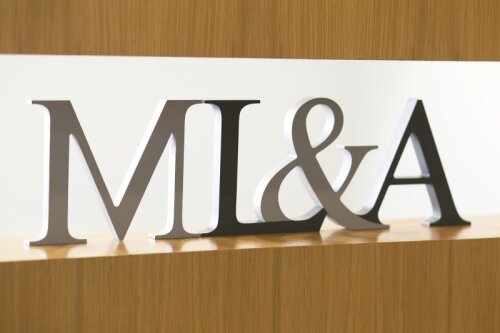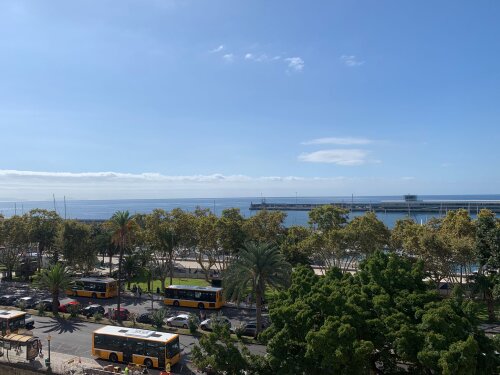Best Appeal Lawyers in Funchal
Share your needs with us, get contacted by law firms.
Free. Takes 2 min.
List of the best lawyers in Funchal, Portugal
About Appeal Law in Funchal, Portugal
Appeal law in Funchal, Portugal, refers to the formal legal process by which individuals or parties challenge court decisions in higher courts. The appeal system in Funchal operates under Portuguese national judicial regulations but proceedings may take place locally and often involve regional courts such as the Tribunal da Relação do Funchal. Appellate proceedings are designed to review errors in law or procedure from the original trial, aiming to ensure a fair application of justice. Appeals are typically available in civil, criminal, labor, administrative, and family cases.
Why You May Need a Lawyer
People often seek a lawyer for appeals in Funchal due to the complexity and strict formalities of the appellate process. Common situations include:
- You believe a lower court made an error in your case.
- Dissatisfaction with a verdict or the severity of a sentence or judgment.
- Procedural mistakes or overlooked evidence during the original trial.
- Your legal rights were not respected during the first proceedings.
- You are a business or individual facing significant consequences from a lower court’s decision.
- You need guidance on whether you have grounds for appeal and the likelihood of success.
- You must respond to an opposing party’s appeal.
A lawyer’s role is essential in navigating appellate procedures, drafting appeal submissions, representing you at hearings, and advising on possible outcomes or alternative dispute resolution methods.
Local Laws Overview
Appeals in Funchal follow Portuguese national law, primarily the Código de Processo Civil (Code of Civil Procedure) and Código de Processo Penal (Code of Criminal Procedure). Key aspects include:
- Time Limits - Appeals must be filed within strict deadlines, typically 15 to 30 days after the judgment depending on the case type.
- Grounds for Appeal - Appeals are typically limited to errors in law or procedure, not simply disagreeing with a decision.
- Court Hierarchy - Local courts’ decisions can be appealed to the Tribunal da Relação do Funchal, and in limited cases, the Supreme Court of Justice in Lisbon.
- Written Submissions - The appellate process is document-driven, requiring detailed written arguments and supporting evidence.
- Finality - Not all decisions can be appealed. Some minor cases may be final at first instance, while others allow only one further appeal.
It is essential to review case specifics with legal counsel, as these rules can be nuanced and subject to updates in Portuguese legislation.
Frequently Asked Questions
What is an appeal?
An appeal is a legal process through which a higher court reviews the decision of a lower court to check for errors in law or procedure.
How long do I have to file an appeal in Funchal?
Typically, you must file an appeal within 15 to 30 days of being notified of the decision, depending on whether it is a civil or criminal matter.
Can every case be appealed?
Not every case is eligible for appeal. Some lower court judgments are considered final, especially in minor matters or when parties waive their right to appeal.
Do I need new evidence to appeal?
Appeals generally focus on errors made in the first trial, not new evidence. However, in exceptional circumstances, new evidence may be considered if it could not have been presented earlier.
Which court will hear my appeal?
Most appeals from Funchal go to the Tribunal da Relação do Funchal, but some specific matters may be escalated to the Supreme Court.
What are the possible outcomes of an appeal?
The appellate court may uphold, reverse, or modify the lower court’s decision, or order a new trial.
How much does an appeal cost?
Costs vary based on court fees, lawyer fees, and case complexity. Legal aid may be available for those unable to afford representation.
Do I need a lawyer for an appeal?
It is highly recommended to have legal representation, as appeals are complex and require technical legal submissions.
How long does an appeal take?
The duration depends on the court’s schedule, case complexity, and procedural issues but often ranges from several months to over a year.
Can I stop enforcement of the decision while appealing?
In certain cases, filing an appeal may suspend enforcement, but sometimes additional measures, such as requesting a stay, are needed. A lawyer can advise on your specific situation.
Additional Resources
For more information or assistance regarding appeals in Funchal, consider these resources:
- Tribunal Judicial da Comarca da Madeira - Local court that handles first instance cases.
- Tribunal da Relação do Funchal - Regional appellate court.
- Ordem dos Advogados (Portuguese Bar Association) - For lawyer referrals and legal aid information.
- Centro de Arbitragem de Conflitos do Consumo da Região Autónoma da Madeira - For alternative dispute resolution.
- Instituto de Gestão Financeira e Equipamentos da Justiça (IGFEJ) - Information on court fees.
- Local legal aid offices in Funchal.
Next Steps
If you believe you may need to file an appeal or require guidance regarding an appellate matter in Funchal:
- Gather all relevant documents, including the original judgment and trial records.
- Contact a qualified lawyer experienced in appeals to assess your case’s merits and procedural options.
- Act quickly to ensure compliance with appeal deadlines.
- Discuss legal fees and the potential for legal aid if cost is a concern.
- Prepare your written submissions and evidence as advised by your lawyer.
- Stay informed and involved throughout the proceedings to optimize your chances of a successful appeal.
Seeking professional legal advice is crucial in the appellate process. Consulting with a knowledgeable local lawyer ensures your rights are protected and that your appeal is presented effectively.
Lawzana helps you find the best lawyers and law firms in Funchal through a curated and pre-screened list of qualified legal professionals. Our platform offers rankings and detailed profiles of attorneys and law firms, allowing you to compare based on practice areas, including Appeal, experience, and client feedback.
Each profile includes a description of the firm's areas of practice, client reviews, team members and partners, year of establishment, spoken languages, office locations, contact information, social media presence, and any published articles or resources. Most firms on our platform speak English and are experienced in both local and international legal matters.
Get a quote from top-rated law firms in Funchal, Portugal — quickly, securely, and without unnecessary hassle.
Disclaimer:
The information provided on this page is for general informational purposes only and does not constitute legal advice. While we strive to ensure the accuracy and relevance of the content, legal information may change over time, and interpretations of the law can vary. You should always consult with a qualified legal professional for advice specific to your situation.
We disclaim all liability for actions taken or not taken based on the content of this page. If you believe any information is incorrect or outdated, please contact us, and we will review and update it where appropriate.












